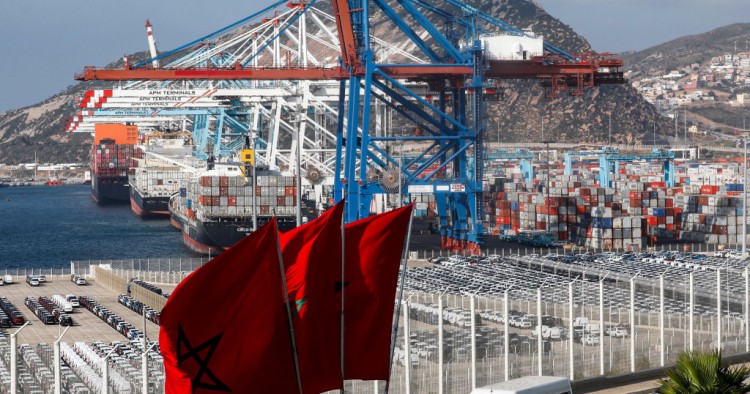The Royal Institute for Strategic Studies (IRES), charged by the Government of Morocco with analyzing and monitoring the country’s external relations, turned its attention to the U.S.-Morocco relationship at a conference conducted at its Rabat headquarters on Oct. 29. Taking note of the long history of the bilateral relationship — Morocco was one of the first countries in the world to recognize the new American republic in 1777 — panelists reviewed the current state of political, economic, and cultural engagement between the two nations.
In more recent times, the Maghreb region has not been a principal focus of U.S. foreign policy interests. Absorbed with managing conflict in the Levant, tensions in the Gulf, and violent extremist threats throughout the region, U.S. policy-makers were generally content to let the relatively quiescent North African sub-region fend for itself. That period of “benign neglect” is coming to an end, however, as the extremist threat has spilled across the borders into the Maghreb and the aftershocks of the Arab Spring continue to roil the political atmosphere, both positively — Tunisia — and more problematically — Libya. Throughout, Morocco has remained a stable and constructive partner for U.S. engagement.
Looking to the future, opportunities abound for more intensive cooperation between the U.S. and Morocco. Security and counter-terrorism operations will undoubtedly remain mainstays of cooperation in the bilateral arena. Morocco’s potential as a regional leader opens the doors for expanded collaboration to resolve local friction, including reviving the dormant Arab Maghreb Union, and addressing critical regional challenges. Climate change, water scarcity, and food security will threaten the stability of all of the Maghreb states in the coming years. U.S. institutions working together with Moroccan counterparts can help build regional resilience and coordinate integrated responses to these common threats. Working with Moroccan domestic partners, the U.S. can also help to promote the principles of good governance, support civil society initiatives, expand women’s empowerment and youth leadership, and strengthen citizen participation in governance.
A visit to the vibrant, bustling city of Tangier, one of Africa’s fastest growing metropolitan areas, underlines the potential for developing a broad range of U.S.-Moroccan relations. Home to the oldest U.S. government-owned facility outside of the United States — the American Legation building, which dates to 1821 — Tangier also boasts Africa’s busiest port, Tanger Med, an entrepôt that connects the world to West Africa. The U.S. private sector is demonstrating increasing awareness not only of the opportunities present in investing in Morocco but also in seeing the Moroccan private sector as a desirable partner in expanding business opportunities throughout Africa.
The IRES conference opened the door to greater awareness in the U.S. of the broad possibilities of strengthening ties to a long-standing partner on the African continent.
Amb. (ret.) Gerald Feierstein is senior vice president at MEI.
Photo by AFP via Getty Images
The Middle East Institute (MEI) is an independent, non-partisan, non-for-profit, educational organization. It does not engage in advocacy and its scholars’ opinions are their own. MEI welcomes financial donations, but retains sole editorial control over its work and its publications reflect only the authors’ views. For a listing of MEI donors, please click here.













